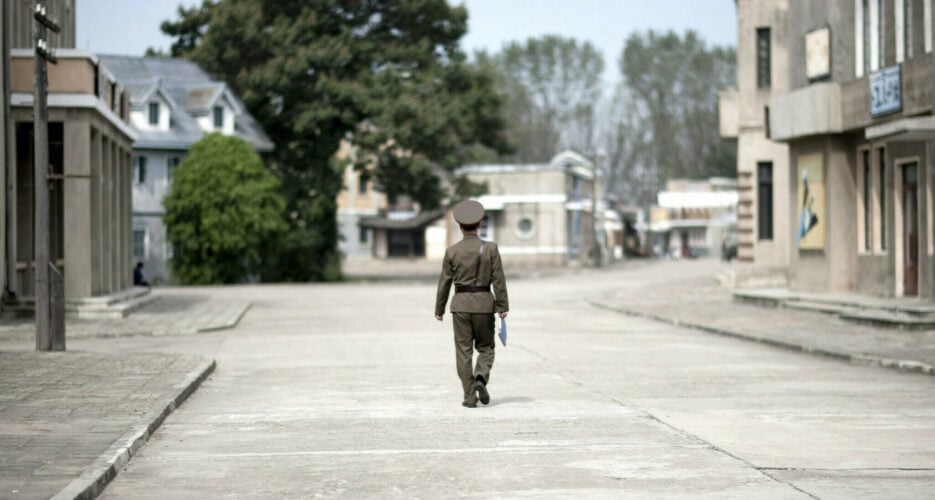Ask a North Korean: What stereotypes do defectors encounter in South Korea?
Capitalist South Korea requires an entirely new mindset from the socialist North, a source of friction for new defectors
NK News (file) | A North Korean soldier stands alone at a Pyongyang film studio on Sept. 10, 2011
“Ask a North Korean” is an NK News series featuring interviews with and columns by North Korean defectors, most of whom left the DPRK within the last few years.
Readers may submit their questions for defectors by emailing [email protected] and including their first name and city of residence.
“Ask a North Korean” is an NK News series featuring interviews with and columns by North Korean defectors, most of whom left the DPRK within the last few years.
Readers may submit their questions for defectors by emailing [email protected] and including their first name and city of residence.
Become a member for less than $4 per week.
Unlimited access to all of NK News: reporting, investigations, analysis
The NK News Daily Update, an email newsletter to keep you in the loop
Searchable archive of all content, photo galleries, special columns
Contact NK News reporters with tips or requests for reporting
Get unlimited access to all NK News content, including original reporting, investigations, and analyses by our team of DPRK experts.
Subscribe now
All major cards accepted. No commitments – you can cancel any time.
